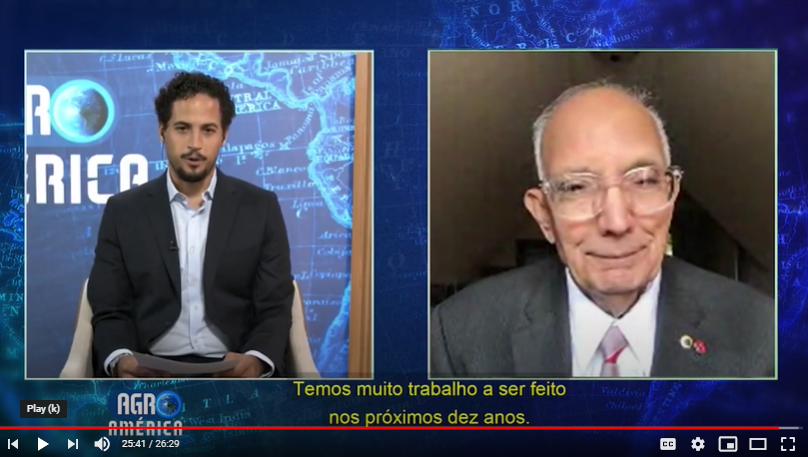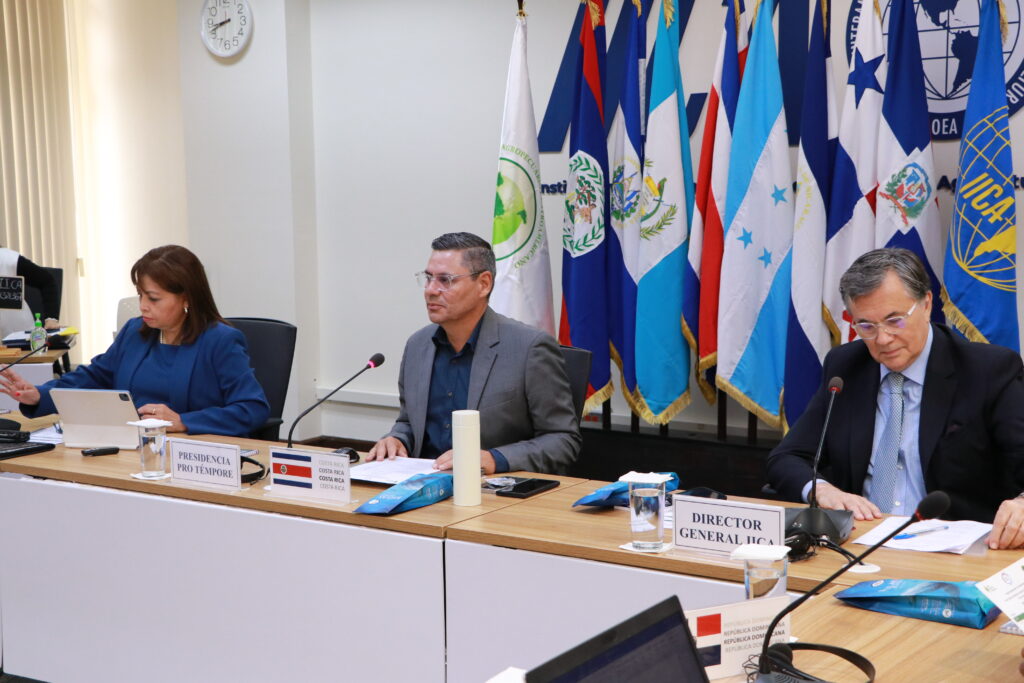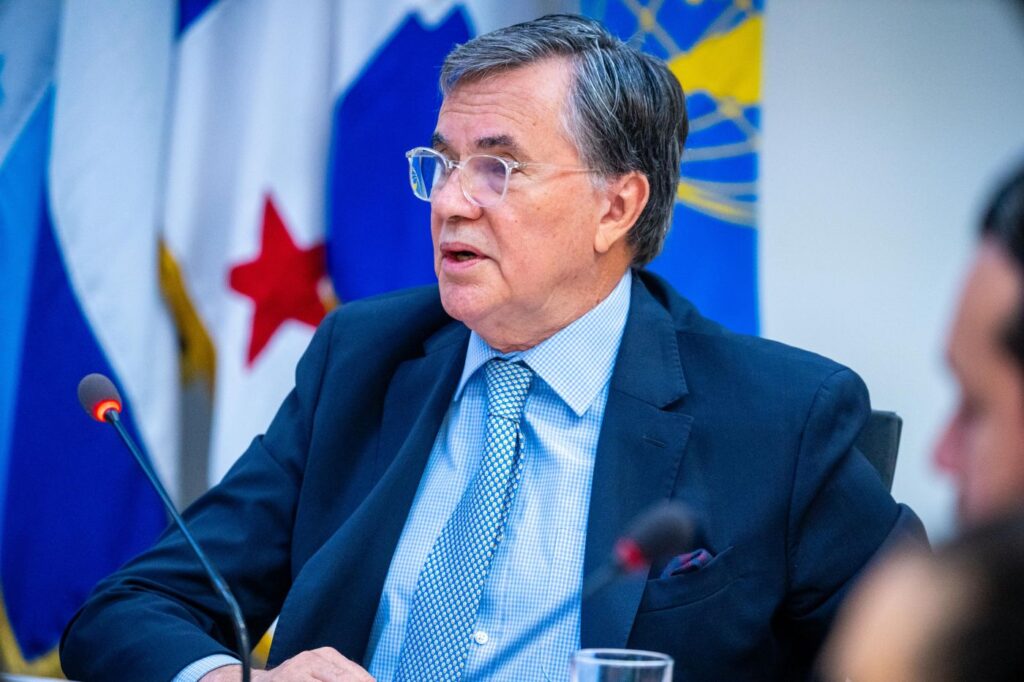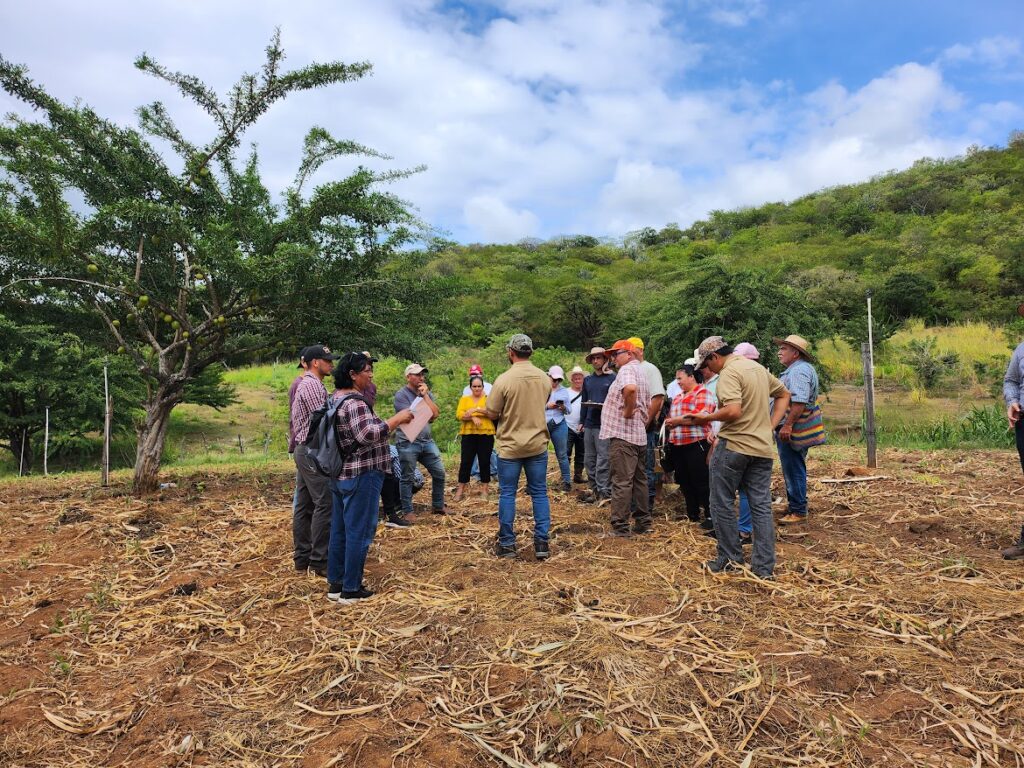Rattan Lal, Premio Mundial de la Alimentación 2020 y Embajador de Buena Voluntad del IICA, resaltó la relación entre la calidad de los suelos y la sostenibilidad de la posición de América Latina como uno de los principales productores y exportadores globales de alimentos.

Brasilia, 11 de febrero de 2021 (IICA) – Sostener y reforzar la posición de América Latina como uno de los principales productores y exportadores globales de alimentos exige mejorar la calidad del suelo de la región, algo imprescindible para aumentar la seguridad alimentaria y nutricional. Los suelos ricos en nutrientes, además, ayudan a mitigar los nocivos efectos del cambio climático.
Esos fueron los principales mensajes expuestos por el Premio Mundial de la Alimentación 2020 y Profesor Distinguido de la Universidad Estatal de Ohio, Rattan Lal, en una entrevista concedida al programa de TV Agro América, fruto de una alianza entre el Instituto Interamericano de Cooperación para la Agricultura (IICA) y el canal brasileño AgroMais.
Lal, principal autoridad mundial en ciencias del suelo y Embajador de Buena Voluntad del IICA, describió las prácticas que deben adoptarse para convertir a la agricultura en una fuente de soluciones a los problemas globales.
“Definitivamente necesitamos un cambio de paradigma. La idea es incentivar a los productores para que mantengan el suelo siempre con vegetación y que en la temporada baja no se are la tierra. Todo residuo de la cosecha anterior debe dejarse en la superficie del suelo para protegerlo de la lluvia, del viento y de altas y bajas temperaturas. Los organismos del suelo también necesitan un hábitat y de fuentes de alimento para que las plantaciones sean tanto fuente de alimento como hábitat para los organismos del suelo”, explicó el científico.
El IICA, Lal y el Centro de Manejo y Secuestro de Carbono (C-MASC) -que el laureado científico dirige en la Universidad Estatal de Ohio-, trabajan en la iniciativa “Suelos Vivos de las Américas” con el objetivo de articular esfuerzos públicos y privados en el combate a la degradación de los suelos, fenómeno que amenaza socavar la capacidad de los países de satisfacer de manera sostenible la demanda de alimentos.
En ese marco, y utilizando los mejores enfoques de gestión, la cooperación técnica internacional trabajará junto a gobiernos, organismos internacionales, universidades, el sector privado y organizaciones de la sociedad civil para contribuir a detener procesos de degradación de la tierra y de la agricultura que agotan la materia orgánica de los suelos.
En referencia a esa iniciativa, Lal recordó que en América Latina y el Caribe 31 millones de personas ya se encontraban en situación de inseguridad alimentaria antes de la pandemia de Covid-19.
“Además de malnutrición, hay desnutrición. La calidad de los alimentos no es tan buena en términos de contenido de proteínas, micronutrientes y vitaminas. Por lo tanto, necesitamos mejorar la salud de los alimentos a partir de los lugares en donde se producen para aumentar su calidad nutricional. No se trata de tener suficiente comida, carbohidratos y azúcares. La cuestión son los micronutrientes, proteínas, vitaminas y otros elementos esenciales críticos”, dijo.
El científico alertó que es posible que haya un aumento en la incidencia de pandemias en el futuro si crece la interferencia humana en relación a la vida silvestre.
“Una mayor interacción entre los humanos y la vida silvestre puede aumentar el problema del transporte de enfermedades de los animales salvajes a los humanos. Es de nuestro interés introducir una zona de amortiguamiento entre los seres humanos y la vida silvestre y, además, devolver área a la naturaleza es muy importante. Los humanos deberían pensar en salvar tierra”, dijo.
En el programa, Lal señaló también que América Latina ha experimentado un “tremendo progreso” agrícola en las últimas tres décadas, pero destacó que donde no se adoptan las mejores prácticas -ya sea en pequeñas propiedades rurales o en agricultura a gran escala-, la degradación ocurre como resultado de la compactación del suelo por el uso de maquinaria y la erosión que se produce en suelos que tienen poco contenido orgánico.
“La mayoría de los Objetivos de Desarrollo Sostenible de las Naciones Unidas se pueden lograr para el 2030. Tenemos diez años, pero solo los lograremos con una gestión adecuada del suelo y de la agricultura. Si no es así, será muy difícil lograr estos objetivos”, advirtió, enfatizando sobre las consecuencias que la degradación del suelo puede ocasionar en las importaciones de la región.
“Brasil, Argentina, Chile y parte de Perú y de México son países exportadores de alimentos, pero al mismo tiempo son importadores. Brasil, por ejemplo, importa trigo. No hay suficiente producción de trigo y muchos países, debido a los efectos del cambio climático, pueden aumentar las importaciones”, previó Lal.
En ese sentido, el profesor recomendó compensar a los agricultores por los servicios ecosistémicos para fomentar la captura de carbono con el fin de mitigar los efectos del cambio climático y aumentar la calidad y renovación del agua y de la biodiversidad.
El programa Agro América es el resultado de una alianza entre el IICA y el canal brasileño de TV AgroMais, del Grupo Bandeirantes de comunicación, que se transmite los jueves con repetición sábados y domingos.
Fuera de Brasil, donde se transmite en los canales de cable Claro (189 y 689); Vivo (587); Sky (569) y OI (176), puede verse a través de los canales del IICA y de AgroMais en YouTube.
Vea la entrevista con Rattan Lal aqui.
Aquí la lista completa de los programas: Clic aqui
Más información:
Gerencia de Comunicación Institucional










